Legendary Furies – Angry And Monstrous Women Of The Underworld
A. Sutherland - AncientPages.com - In Greek mythology, the Erinyes (also known as Furies) were three goddesses of revenge and retribution. The women resided in the underground world and were considered monstrous and evil.
Departing of Furies. Image credit: The Baldwin Project
These three sisters were called Alecto ("the angry"), Megaera ("the grudging"), and Tisiphone ("the avenger").
How the Furies were created remains unclear. According to one legend, they came from the blood of the Titan Uranus, when his son Cronus castrated him to take revenge for the loss of his siblings.
According to another legend, the Furies were Nyx's daughters, the night's symbolization, and a daughter of Chaos.
The "infernal goddesses" correspond to the Dirae in Roman mythology, and some suppose that they are called Furies in hell, Harpies on earth, and Dirae in heaven.
 Orestes at Delphi, flanked by Athena and Pylades, among the Erinyes and priestesses of the oracle. Paestan red-figure bell-krater, c. 330 BC. Python (as painter) - Jastrow (2006) - Public Domain
Orestes at Delphi, flanked by Athena and Pylades, among the Erinyes and priestesses of the oracle. Paestan red-figure bell-krater, c. 330 BC. Python (as painter) - Jastrow (2006) - Public Domain
Their appearance was remarkable and hideous. They had snakes for hair, dogs' heads, coal-black bodies, and bat wings. They had burning breath, and poisonous blood was dripping from their eyes. In their hands, they carry brass-studded scourges, and their victims die in torment.
The role of the Furies was to persecute crimes such as disrespect, injustice, perjury, arrogance, and, first and foremost- murder, especially the murder inside a family. The Furies were regarded as very evil because their lust for punishment knew no bounds, for they kept punishing a sinner even after his death until he finally showed remorse.
One of the most frequently repeated examples of ancient Greek literature featuring the Erinyes is found in examples that focus on the Orestes myth.
Orestes belonged to the third generation of the House of Atreus and was the last to suffer the curse of the Erinys, which plagued his house. As the story goes, Atreus and his brother Thyestes were rivals for the throne of Mycenae.
The Remorse of Orestes, where he is surrounded by the Erinyes. Image credit: William-Adolphe Bouguereau, 1862; Chrysler Museum of Art, Norfolk, Virginia
When Atreus won the throne, Thyestes conspired against him, seducing his wife to gain possession of a golden ram that would win him the kingdom.
But his sons, Agamemnon and Menelaus, drove him from the throne.
Atreus, however, returned from exile and regained his throne, expelling Thyestes. But, desiring a harsher penalty, he invited his brother back, murdered his two sons, and served them up before him as a meal. Later, Thyestes' son Aigisthos avenged this crime with the murder of Atreus.
When Agamemnon was away fighting the Trojan War, Aigisthos returned, seduced Agamemnon's queen Klytaimestra and conspired with her to murder the king upon his return. A curse fell upon the guilty pair, and his father's Erinys compelled the young Orestes to exact his vengeance.
Orestes himself was afterward plagued by the Erinys of his mother Klytaimestra for the crime of matricide until he was purified of the blood guilt by Apollo.
Erinyes are also Furies because their name in Greek mythology means "the angry ones."
Written by – A. Sutherland - AncientPages.com Senior Staff Writer
Updated on October 29, 2022
Copyright © AncientPages.com All rights reserved. This material may not be published, broadcast, rewritten or redistributed in whole or part without the express written permission of AncientPages.com
More From Ancient Pages
-
 Göbeklitepe-Like Kahin Tepe Is Oldest Worship Place In Black Sea Region – Interesting Finding
Archaeology | Sep 30, 2020
Göbeklitepe-Like Kahin Tepe Is Oldest Worship Place In Black Sea Region – Interesting Finding
Archaeology | Sep 30, 2020 -
 Satellite Images Reveal Ancient Mesopotamian City Pre-Dating The Egyptian Pyramids
Archaeology | Mar 10, 2022
Satellite Images Reveal Ancient Mesopotamian City Pre-Dating The Egyptian Pyramids
Archaeology | Mar 10, 2022 -
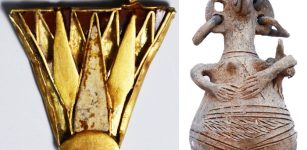 Stunning Gold Jewelry And Artifacts From The Time Of Nefertiti Found In Bronze Age Tombs In Cyprus
Archaeology | Dec 2, 2021
Stunning Gold Jewelry And Artifacts From The Time Of Nefertiti Found In Bronze Age Tombs In Cyprus
Archaeology | Dec 2, 2021 -
 Intriguing El Tajin – Pre-Hispanic Ceremonial Site Dedicated To Totonac Rain God
Featured Stories | Jul 17, 2016
Intriguing El Tajin – Pre-Hispanic Ceremonial Site Dedicated To Totonac Rain God
Featured Stories | Jul 17, 2016 -
 Ancient Viking Age Music Recreated – This Is What It Sounds Like
Featured Stories | Sep 20, 2020
Ancient Viking Age Music Recreated – This Is What It Sounds Like
Featured Stories | Sep 20, 2020 -
 Wolstenholme Towne: Lost Virginia Settlement – Destroyed, Abandoned And Forgotten
Featured Stories | Jun 26, 2018
Wolstenholme Towne: Lost Virginia Settlement – Destroyed, Abandoned And Forgotten
Featured Stories | Jun 26, 2018 -
 Why Are Statues Of Mythical Yeti Dividing People In The Himalayas?
Featured Stories | Feb 18, 2020
Why Are Statues Of Mythical Yeti Dividing People In The Himalayas?
Featured Stories | Feb 18, 2020 -
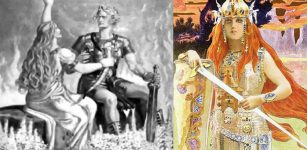 Valkyries Sigrdriva And Brynhildr: Brave Warriors Who Were Punished By God Odin In Norse And Germanic Mythology
Featured Stories | Apr 4, 2017
Valkyries Sigrdriva And Brynhildr: Brave Warriors Who Were Punished By God Odin In Norse And Germanic Mythology
Featured Stories | Apr 4, 2017 -
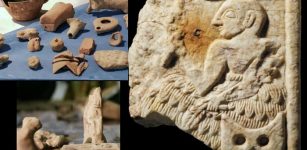 Hundreds Of Thousands Of Sumerian Artifacts Have Been Stolen From Iraq’s Museums And Archaeological Sites
Artifacts | Dec 7, 2020
Hundreds Of Thousands Of Sumerian Artifacts Have Been Stolen From Iraq’s Museums And Archaeological Sites
Artifacts | Dec 7, 2020 -
 Battle Of Himera: New Study That Contradicts Historical Accounts
News | May 24, 2021
Battle Of Himera: New Study That Contradicts Historical Accounts
News | May 24, 2021 -
 Why We Celebrate Saint Lucy’s Day – The Bringer Of Light And Patron Of The Blind
Christmas Traditions | Dec 13, 2024
Why We Celebrate Saint Lucy’s Day – The Bringer Of Light And Patron Of The Blind
Christmas Traditions | Dec 13, 2024 -
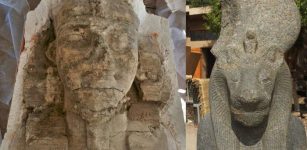 Two Giant Limestone Sphinxes Of Pharaoh Amenhotep III And A Statue Of Goddess Sekhmet Discovered In Luxor
Archaeology | Aug 11, 2022
Two Giant Limestone Sphinxes Of Pharaoh Amenhotep III And A Statue Of Goddess Sekhmet Discovered In Luxor
Archaeology | Aug 11, 2022 -
 Mysterious And Magnificent Pasha Gardens Built For Unknown Reasons
Featured Stories | Oct 8, 2018
Mysterious And Magnificent Pasha Gardens Built For Unknown Reasons
Featured Stories | Oct 8, 2018 -
 Amaru (Katari) – Powerful Inca God Who Controlled Weather Phenomena
Featured Stories | Apr 9, 2024
Amaru (Katari) – Powerful Inca God Who Controlled Weather Phenomena
Featured Stories | Apr 9, 2024 -
 Fascinating Ancient And Unexplained Mysteries Of Arizona – Strange, Unknown Creatures, Baffling Vanishings And Anomalies – Part 2
Featured Stories | Oct 1, 2024
Fascinating Ancient And Unexplained Mysteries Of Arizona – Strange, Unknown Creatures, Baffling Vanishings And Anomalies – Part 2
Featured Stories | Oct 1, 2024 -
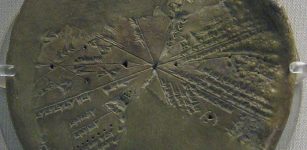 Assyrian King Ashurbanipal’s Great Library With Thousands Of Cuneiform Tablets
Civilizations | Dec 9, 2015
Assyrian King Ashurbanipal’s Great Library With Thousands Of Cuneiform Tablets
Civilizations | Dec 9, 2015 -
 The Great Flood And Noah’s Ark Were Real Events – Scientist Says
Featured Stories | Jun 21, 2014
The Great Flood And Noah’s Ark Were Real Events – Scientist Says
Featured Stories | Jun 21, 2014 -
 Archaeological Enigma On The Træna Islands – What Happened To The Local Community?
Archaeology | Nov 28, 2023
Archaeological Enigma On The Træna Islands – What Happened To The Local Community?
Archaeology | Nov 28, 2023 -
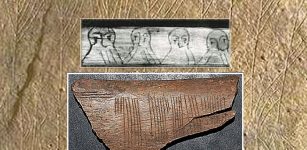 Mysterious Viking Code Jötunvillur Deciphered By Norwegian Researcher
News | Feb 24, 2014
Mysterious Viking Code Jötunvillur Deciphered By Norwegian Researcher
News | Feb 24, 2014 -
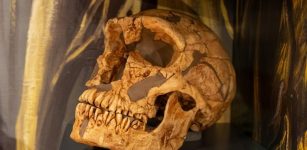 Why Is La Ferrassie Man A Unique And Famous Neanderthal?
Featured Stories | Oct 30, 2023
Why Is La Ferrassie Man A Unique And Famous Neanderthal?
Featured Stories | Oct 30, 2023


